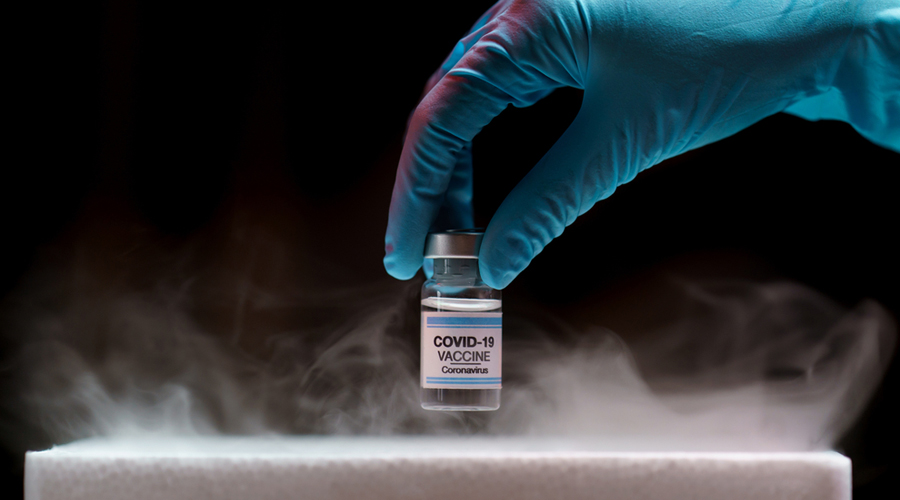
India Covid vaccine makers in corporate hostility -Medical experts fear potential to sow distrust in public

The heads of the Pune-based Serum Institute, manufacturing the AstraZeneca-Oxford vaccine in India, and the Hyderabad-based Bharat Biotech, producing a home-grown vaccine, have questioned the credentials of each other’s vaccine.
India’s drug regulatory authority on Sunday approved restricted emergency use of both vaccines, clearing the decks for the government to launch its planned campaign to vaccinate over 300 million people in the coming six months.
Some medical researchers have questioned both the approvals, underlining what they say is the absence of adequate efficacy data on the AstraZeneca-Oxford vaccine and the lack of any efficacy data on the Bharat Biotech vaccine.
Covid-19 vaccines from Pfizer, Moderna, Sputnik V and a Chinese manufacturer are already in emergency use in several countries. The UK and Argentina have also approved the AstraZeneca-Oxford vaccine.
Serum Institute’s chief executive officer Adar Poonawala on Sunday told a television channel that only three vaccines had “proven efficacy” and the rest were “safe like water”.
“There are only three vaccines in the world (with) proven efficacy… it’s Pfizer, Moderna and Oxford-AstraZeneca. These are the only three vaccines which have proven to work.
Everything else has been proven to be safe, just like water,” Poonawala said.
Bharat Biotech managing director Krishna Ella, a scientist turned entrepreneur, responded on Monday, questioning the quality and quantity of data submitted by AstraZeneca and Serum for regulatory approval for their vaccine.
The home-grown vaccine, developed jointly with the Indian Council of Medical Research, has proved safe and capable of generating a strong immune response against the coronavirus, Ella said.
“We now have five publications (research papers) in peer-reviewed journals or under review,” he said.
The type of immune response observed with the home-grown vaccine suggests long-lasting immunity for six to 12 months, he said.
Ella underlined issues relating to the clinical trial conducted by AstraZeneca in the UK and Brazil that some researchers have described as signals of sloppy science. The trial had involved two different dosing regimens with 62 per cent efficacy, 90 per cent efficacy and a pooled efficacy of 70 per cent.
“No one is questioning the lousy trial in the UK…. If we had done such a trial in India, our regulators would have shut down our company,” Ella said. “But (India’s regulators) have been gracious enough to approve the vaccine keeping in mind the public health emergency.”
Amid the controversy, a Gurgaon-based doctor tweeted: “I will wait for the Pfizer vaccine. Until then, I am going to wear a mask and social distance.”
Pfizer has also sought emergency use authorisation of its vaccine in India.
Ella said Bharat Biotech’s Covid-19 vaccine was not the first to receive emergency use approval without efficacy data. In the past, he said, Ebola vaccines from Merck and Johnson & Johnson had been approved without efficacy data.
In India too, Ella said, during the 2009 H1N1 influenza epidemic, drug regulators had allowed Bharat Biotech and a few other companies – Serum Institute, Panacea and Zydus – to launch influenza vaccines in the absence of efficacy data.
He said the Serum Institute had conducted a safety trial with the AstraZeneca-Oxford vaccine on only 1,200 volunteers in India and submitted immunogenicity data on less than the required 400 participants. A senior Indian Council of Medical Research officer confirmed this.
The Serum Institute did not immediately respond to a query from this newspaper on the limited immunogenicity data submitted for the review.
Clinical researchers said such exchanges between vaccine makers had the potential to sow distrust.
Gagandeep Kang, professor of microbiology at the Christian Medical College, Vellore, and a vaccine science specialist, said: “Calling out other products builds distrust. I hope the leaders of our vaccine industry and our government foster an environment where our science and industry are recognised for the public good they provide and not for competition.”
Both Serum and Bharat Biotech expect to supply vaccines to the government in the coming months.



0 Response to "India Covid vaccine makers in corporate hostility -Medical experts fear potential to sow distrust in public"
Post a Comment
Disclaimer Note:
The views expressed in the articles published here are solely those of the author and do not necessarily reflect the official policy, position, or perspective of Kalimpong News or KalimNews. Kalimpong News and KalimNews disclaim all liability for the published or posted articles, news, and information and assume no responsibility for the accuracy or validity of the content.
Kalimpong News is a non-profit online news platform managed by KalimNews and operated under the Kalimpong Press Club.
Comment Policy:
We encourage respectful and constructive discussions. Please ensure decency while commenting and register with your email ID to participate.
Note: only a member of this blog may post a comment.